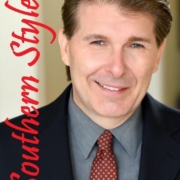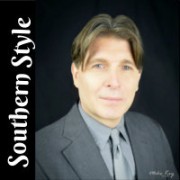I’m on my way back to the old home
The holidays always bring a sense to me within my soul. It’s a desire to go home and spend time with the family and old friends in familiar environs.
For me a peace comes over me when open horizons turn to mountain hillsides and tight roads winding between them back into the hollers. The farm houses stand upon the high points leaving what bit of flat there is for growing crops.
Smoke rises from the chimneys as I wind up through the valley to reach the old home place that sheltered our family for nearly two hundred years.
On the porch as I reach the drive are my grandmother and grandfather finishing the hanging of the greens to decorate the outside of the house.
The interior will already be filled with the smells and the vision of hundreds of Christmases – stockings on the mantle, a fresh cut tree with all types of handmade decorations hanging from the limbs.
Sadly, the vision I see today is only in my mind’s eye as the old home place is now someone else’s and the older generations that once gathered at it’s hearth are now resting beneath the family sod.
This year I chose to make my journey to my musical home place. So much of my life and mentoring came from the musical lineage of the Father of Bluegrass Music – Bill Monroe and his Uncle Pen Vandiver. The lineage is sort of mine as they both were my mother’s cousins. I was so blessed as a teen when Bill took me on to mentor my fiddling and my band leading.
So, I decided to go back to his hometown of Rosine, Ky. To visit. I was blessed in that my old friend Marty Hays and his wife Robin hosted my visit at the Bill Monroe Homeplace. The restored home has many of the aspects of the home that Bill knew as a boy. Each room offers a unique look into the warm fires that once burned in the fireplaces.
In one of his songs “I’m On My Way Back to the Old Home,” he tells a story of the Homeplace.
That today also hosts the annual Jerusalem Ridge Bluegrass Festival. I hope that you will take the time to add it to your plans for 2025. It’s a wonderful show with many of the top talents of bluegrass being there.
During my visit, I was blessed to also take in the Uncle Pen’s Cabin – owned by James Monroe, and the Bill Monroe Museum. I went to the Rosine Cemetery and paid my respects to Bill, Uncle Pen and all the Monroe clan.
To help make the visit a musical connection back to my time touring with his Blue Grass Boys, I celebrated my 40th Anniversary with a concert at the Rosine Barn Jamboree accompanied by the talents of The Rosine Sound. This talented group includes Marty Hays, Jasper Dale Beatty, Larry Hill and Dylan Lunsford. It was an uplifting show and with their help I played many of the tunes that I had shared with Bill.
Meeting the people of Rosine and enjoying the warm welcome they offered was similar to the mind’s eye vision I described at the beginning of my piece. I may not be able to recreate those days that stand in my memory, but I sure can make them over in news ways.
I encourage you, if your wishing to take a trip and find both good folks and some interesting places to see look towards https://www.ohiocounty.com/



 Outside of Nashville’s historic Ryman Auditorium, country and bluegrass legend Ricky Skaggs unveiled a newly installed life-size bronze statue dedicated to his musical mentor, Bill Monroe.
Outside of Nashville’s historic Ryman Auditorium, country and bluegrass legend Ricky Skaggs unveiled a newly installed life-size bronze statue dedicated to his musical mentor, Bill Monroe. the Blue Grass Boys, named for Monroe’s home state of Kentucky.
the Blue Grass Boys, named for Monroe’s home state of Kentucky. Dickens recorded many novelty songs including “Country Boy,” “A-Sleeping at the Foot of the Bed,” “I’m Little but I’m Loud,” and his biggest hit, the No. 1 “May the Bird of Paradise Fly Up Your Nose.” His song “Take an Old Cold Tater (And Wait)” inspired Hank Williams to nickname him Tater.
Dickens recorded many novelty songs including “Country Boy,” “A-Sleeping at the Foot of the Bed,” “I’m Little but I’m Loud,” and his biggest hit, the No. 1 “May the Bird of Paradise Fly Up Your Nose.” His song “Take an Old Cold Tater (And Wait)” inspired Hank Williams to nickname him Tater.
